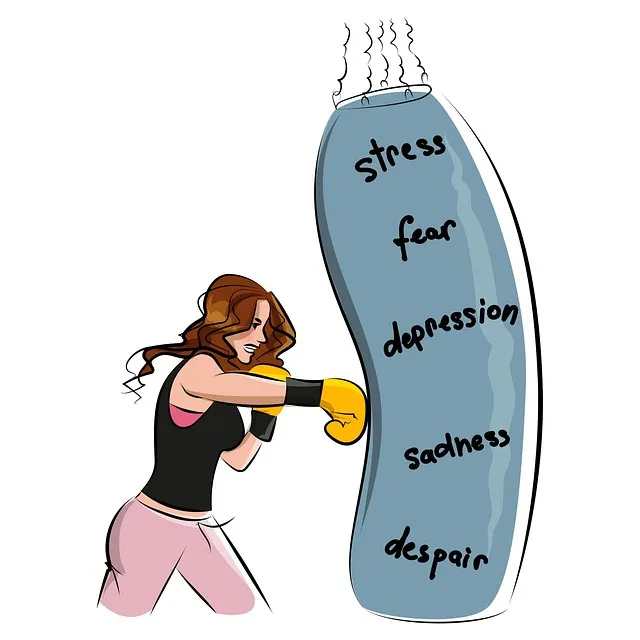In Castle Rock, community outreach programs play a vital role in enhancing mental health access by addressing local needs and stigma, particularly regarding Kaiser's coverage of therapy. These initiatives provide tailored assistance, education on trauma support and risk management, and stigma reduction strategies. By fostering trust and understanding, they ensure resources reach vulnerable populations, cultivating a healthier community. Kaiser's comprehensive services, including therapy, counseling, and education programs, revolutionize mental health care accessibility in Castle Rock, empowering residents with tools for daily mental wellness. Effective outreach requires strategic approaches tailored to diverse needs, cultural sensitivity, and addressing barriers like "Castle Rock does Kaiser cover mental health therapy?" to increase engagement and positive transformations.
In Castle Rock, improving mental health access is paramount. This article explores community outreach programs as a powerful tool for achieving this goal, with a specific focus on Kaiser’s role in providing mental health services and their impact. We delve into effective implementation strategies, addressing barriers to ensure widespread participation. Given the critical need for mental health support in Castle Rock, understanding how Kaiser’s coverage of mental health therapy through these initiatives can make a tangible difference is essential reading.
- Understanding Community Outreach: Why It Matters for Mental Health Access in Castle Rock
- Kaiser's Role: Unveiling Their Mental Health Services and Their Impact on the Community
- Implementing Effective Programs: Strategies for Success in Reaching Individuals in Need
- Overcoming Barriers: Addressing Challenges to Ensure Widespread Participation and Accessibility
Understanding Community Outreach: Why It Matters for Mental Health Access in Castle Rock

In Castle Rock, community outreach programs play a pivotal role in enhancing mental health access and addressing critical issues like the stigma surrounding mental illness. Understanding the local community’s unique needs is essential, especially when considering that Kaiser’s coverage of mental health therapy may vary. Many residents might face challenges in accessing these services, making grassroots initiatives vital. These programs aim to bridge the gap by providing direct support and education tailored to Castle Rock’s demographics.
Community outreach goes beyond simple awareness; it involves fostering trust and creating safe spaces for individuals to seek help. Trauma support services, risk management planning for mental health professionals, and stigma reduction efforts are all integral parts of this strategy. By engaging with the community, mental health advocates can ensure that resources reach those most in need, fostering a healthier and more supportive Castle Rock environment.
Kaiser's Role: Unveiling Their Mental Health Services and Their Impact on the Community

In Castle Rock, Kaiser has played a pivotal role in transforming mental health care accessibility. Their comprehensive services extend far beyond traditional medical practices, offering a range that includes therapy, counseling, and support groups tailored to diverse community needs. By integrating these services into the fabric of the region, Kaiser ensures that mental wellness becomes a prioritised aspect of overall health.
For individuals grappling with mental health crises, Kaiser provides crucial resources like crisis intervention guidance, enabling prompt and effective management of stressful situations. Furthermore, their Mental Health Education Programs Design fosters awareness and promotes healthy coping mechanisms within the community. This multifaceted approach not only addresses immediate concerns but also contributes to a proactive culture where mental wellness is nurtured and supported on a daily basis.
Implementing Effective Programs: Strategies for Success in Reaching Individuals in Need

Implementing effective community outreach programs requires a strategic approach to ensure success in reaching individuals in need. Organizations like Kaiser in Castle Rock offer valuable mental health services, addressing a crucial aspect of community wellness. By understanding the unique challenges and needs of the target population, program organizers can develop tailored initiatives. One key strategy is adopting empathy-building techniques, fostering connections and trust between service providers and beneficiaries.
Incorporating practices like mindfulness meditation and encouraging the development of self-care routines can significantly enhance mental health outcomes. These activities not only provide immediate support but also empower individuals with tools to manage stress, improve well-being, and seek help proactively. Customized programs that cater to diverse needs, whether through group sessions or one-on-one support, are more likely to resonate with participants, leading to better engagement and positive transformations.
Overcoming Barriers: Addressing Challenges to Ensure Widespread Participation and Accessibility

In implementing community outreach programs, one of the primary challenges is overcoming barriers to ensure widespread participation and accessibility. Many individuals, especially those in underserved communities, face obstacles that prevent them from engaging with mental health services. For instance, in Castle Rock, questions arise regarding Kaiser’s coverage of mental health therapy, leaving some residents hesitant to seek support due to concerns over affordability and access. To address these challenges, program designers must consider the unique needs and constraints of their target audience. Customizing initiatives that cater to diverse populations, including cultural sensitivity training for healthcare providers, can significantly enhance participation rates.
Effective outreach involves more than just promoting mental health services; it encompasses educating communities about the importance of mental well-being. Mental Health Education Programs Design should focus on raising awareness and dispelling stigma associated with seeking therapy. By incorporating interactive workshops and confidence-boosting activities, individuals are empowered to take charge of their mental health. Moreover, teaching self-care routine development can equip community members with practical tools to manage stress and maintain a healthy mind. Such initiatives not only promote accessibility but also foster a culture where mental health is prioritized.
Community outreach programs play a pivotal role in enhancing mental health access, especially in areas like Castle Rock. Kaiser’s initiatives demonstrate the power of such programs, offering vital mental health services that can significantly improve community well-being. By implementing effective strategies and addressing barriers, organizations can ensure these programs reach individuals in need, fostering a healthier and more supportive Castle Rock. Understanding and leveraging these programs is crucial for promoting mental health awareness and accessibility across communities, including Kaiser’s coverage of mental health therapy in Castle Rock.






